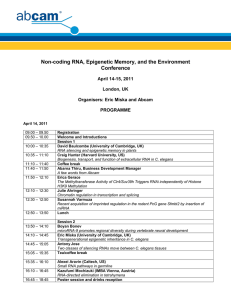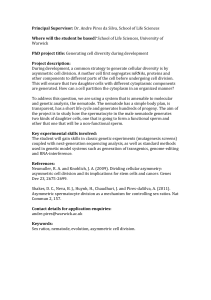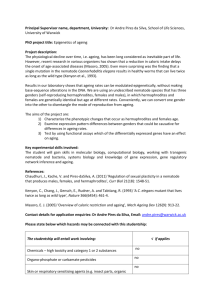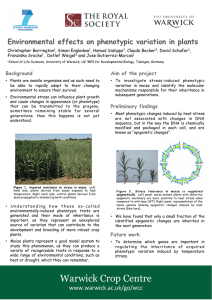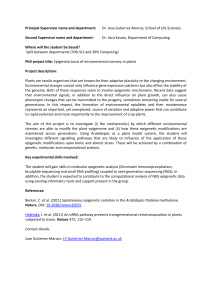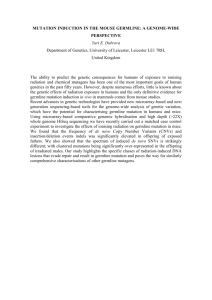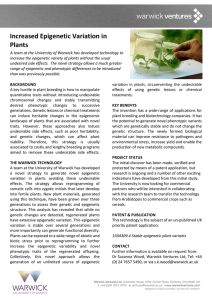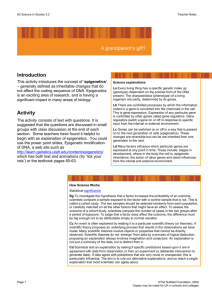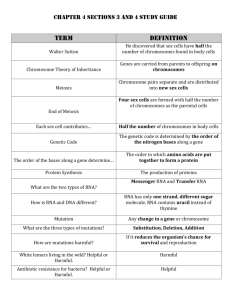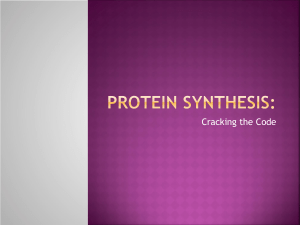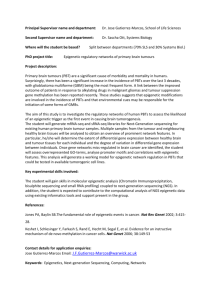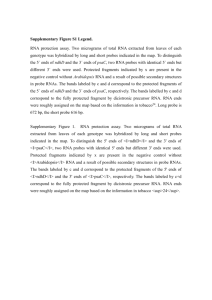Epigenetic inheritance of adaptive traits
advertisement
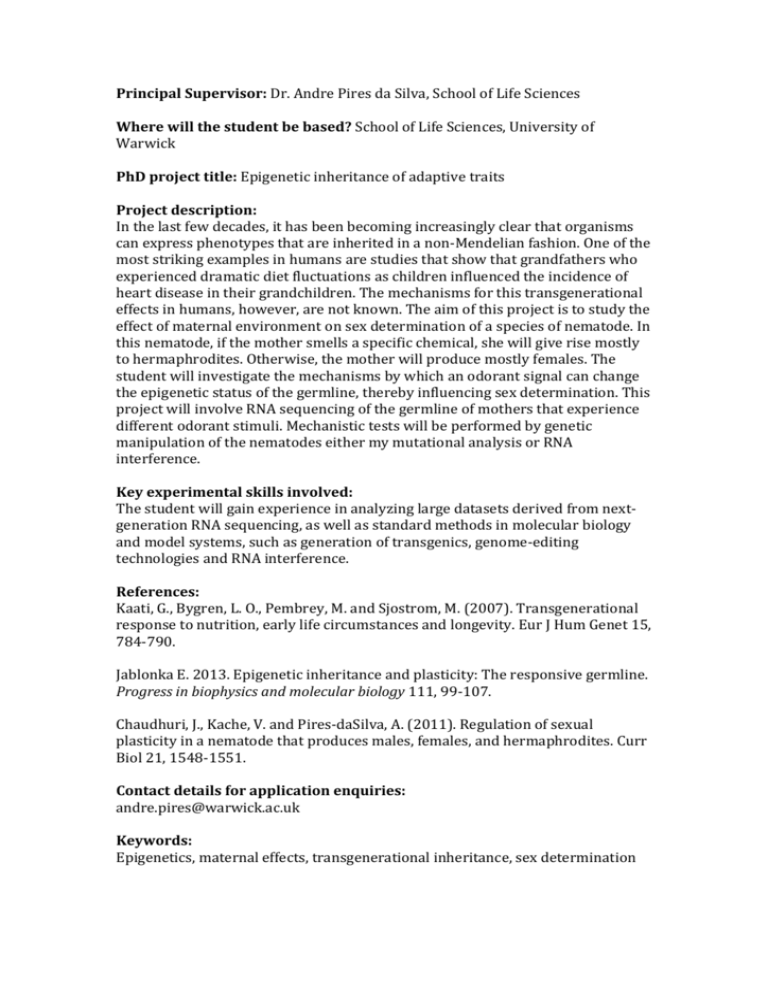
Principal Supervisor: Dr. Andre Pires da Silva, School of Life Sciences Where will the student be based? School of Life Sciences, University of Warwick PhD project title: Epigenetic inheritance of adaptive traits Project description: In the last few decades, it has been becoming increasingly clear that organisms can express phenotypes that are inherited in a non-Mendelian fashion. One of the most striking examples in humans are studies that show that grandfathers who experienced dramatic diet fluctuations as children influenced the incidence of heart disease in their grandchildren. The mechanisms for this transgenerational effects in humans, however, are not known. The aim of this project is to study the effect of maternal environment on sex determination of a species of nematode. In this nematode, if the mother smells a specific chemical, she will give rise mostly to hermaphrodites. Otherwise, the mother will produce mostly females. The student will investigate the mechanisms by which an odorant signal can change the epigenetic status of the germline, thereby influencing sex determination. This project will involve RNA sequencing of the germline of mothers that experience different odorant stimuli. Mechanistic tests will be performed by genetic manipulation of the nematodes either my mutational analysis or RNA interference. Key experimental skills involved: The student will gain experience in analyzing large datasets derived from nextgeneration RNA sequencing, as well as standard methods in molecular biology and model systems, such as generation of transgenics, genome-editing technologies and RNA interference. References: Kaati, G., Bygren, L. O., Pembrey, M. and Sjostrom, M. (2007). Transgenerational response to nutrition, early life circumstances and longevity. Eur J Hum Genet 15, 784-790. Jablonka E. 2013. Epigenetic inheritance and plasticity: The responsive germline. Progress in biophysics and molecular biology 111, 99-107. Chaudhuri, J., Kache, V. and Pires-daSilva, A. (2011). Regulation of sexual plasticity in a nematode that produces males, females, and hermaphrodites. Curr Biol 21, 1548-1551. Contact details for application enquiries: andre.pires@warwick.ac.uk Keywords: Epigenetics, maternal effects, transgenerational inheritance, sex determination
